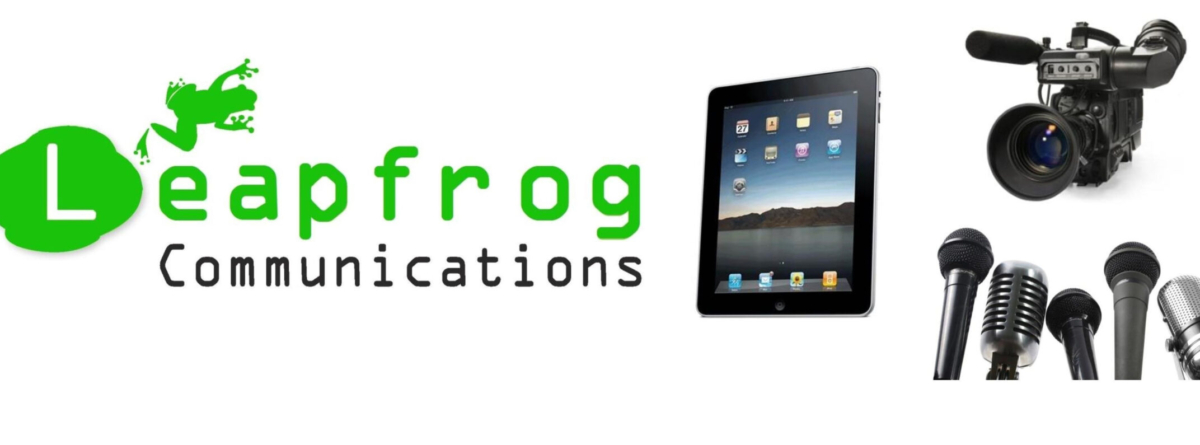10 FAQs
- Does it really matter what I wear on radio or television?
It certainly does, although obviously it’s more important on television than on radio. When you’re being interviewed, you’re representing someone or something – an organisation, your community, a business, or, at the very least, yourself. It’s important to look the part, as well as sound the part.
If you’re being interviewed in a television studio, find out what the dress code is. Women should avoid clunking bangles, jangly necklaces and dangly earrings. Darker colours, like navy or charcoal, will make you look thinner; and no sequins, polka dots or checks. Men should opt for a sober suit – black, navy or charcoal. If the presenter and other guests wear a tie, you should do the same. Men: if you’re offered make-up, take it. Studio lights are unforgiving.
- Surely the best thing to say when your organisation is in a tight spot and the media is after you is, “No comment”?
Wrong! No matter how bad a position you or your organisation is in, a confident explanation can often improve your situation or help change public perception. A refusal to put forward a spokesperson will suggest – like it or not – that you have something to hide. At the very least, acknowledge what has gone wrong, apologise if appropriate and promise to look at how the ‘problem’ can be avoided in future. Nature abhors a vacuum. If YOU don’t speak, you can be sure your critics will!
- Live interviews scare the life out of me; is it okay to ask for a pre-record?

First of all, it’s okay to be nervous – it’s natural, it keeps you on your toes and prevents complacency. Remember, you probably know a lot more about the subject than the person interviewing you. You can ask a pharmacist for help but – if the problem persists or if your performance is affected – consider whether you’re the right person for the task: someone else might be better doing the interview. The big advantage of a live interview, of course, is that it can’t be edited, so you can’t be misrepresented. But you need to get it right first time.
- I have to deliver an important speech but the thought of speaking to an audience absolutely terrifies me. Is there anything I can do to get through it, with my reputation intact?
The two keys to delivering a successful speech are preparation and practice. You can be sure that even the most accomplished and apparently ‘spontaneous’ speakers will have researched and rehearsed before an important public appearance. Find out everything you can about your audience and the event beforehand. Will there be other speakers? How long will you have to speak for? Will you have a microphone? Once you have done that, start to work on the content of your speech.
If you keep your language and your sentences simple, you’ll be less likely to stumble through what you’re saying or to suffer from a dry mouth. Try to structure your speech around an introduction, the main body and a conclusion. Try and ‘hook’ the audience from the very beginning with a clever or, if appropriate, amusing opening. Practise your speech, firstly, on your own in front of a mirror and then before any friends or relatives who’re willing to listen to you. Remember: practice makes perfect. Don’t apologise for being nervous – if you’re well prepared, the odds are the audience won’t notice. Finally, try to relax, breathe, take your time, smile and go for it!
- I’d rather do a radio interview by telephone than in the studio, but the producers prefer that I come to the studio. Does it really matter where I am?
The studio is always better. For starters, you have eye contact with the interviewer, which is much better for communicating, and the conversation will always flow better. Some people find the equipment and lighting quite daunting, but try to ignore them. Leave the professionals to look after them and concentrate on getting your message across.

- What do I need to find out if I’m invited for a radio or television interview?
Good question. It pays to do your homework. Find out whether the interview is live or recorded; who else will be interviewed on the programme; who the presenter/interviewer is; what the interviewer’s style is (aggressive, confrontational, conversational); whether there’ll be other contributions (e.g. phone calls from members of the public). You can do without an unpleasant surprise.
- What should I do if I run out of things to say or forget what I’m supposed to be talking about?
If it’s a case of having forgotten the question, there’s nothing wrong with asking the interviewer – politely – to repeat it for you. If you’ve got your key message in note form in front of you (as you should have), you can cover up your temporary memory loss by simply repeating your main points. If you’ve simply said all you have to say, don’t panic. The silence is a problem for the interviewer, not for you. There’s little that a broadcaster hates more than dead air, unless it’s being used for ‘dramatic’ effect. In most cases, the interviewer will quickly jump in to rescue the situation and fill the silence for you.
- I don’t like the presenter’s attitude. He’s biased and ignorant, and deserves to be taken down a peg or two. Should I ‘go for’ him?
Don’t attack the interviewer and NEVER resort to personal abuse. Viewers or listeners might think you’re a bully. You could lose their attention. Worse than that, you could lose their sympathy. Remember: you’re there to get your message across. You don’t want any distractions and you certainly don’t want to alienate the audience.

- I want to sound ‘polished’. Is it alright to write down the points I want to make and read them out?
Reading out full answers on the radio or television is a definite no-no. This never sounds natural; in fact it usually sounds awful. By all means make a few, very brief notes (on a record card, for example) which you can glance at, but the aim is to look and sound sincere, and to appear like you know what you’re talking about. Don’t worry about the odd ‘um’ and ‘er’ – this is perfectly normal; if anything, it shows that you’re thinking. Think about what you’re going to say; don’t start talking just for the sake of it.
- What does ‘FAQ’ stand for?
Strangely enough, this is one of the questions we are asked most frequently. It stands for frequently asked questions. Doh.

